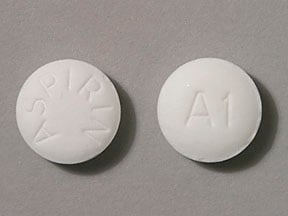
Gnp Aspirin Coupons & Savings Card – Discount Prices from $3.18
Brand for: Aspirin
My prescription
Edit
325MG, Aspirin (30 Tablets)
Select pharmacy

Walgreens
$3.18
COUPON PRICE
Albertsons
$3.83
COUPON PRICE
Walmart
$10.26
COUPON PRICEGnp Aspirin savings card
Show this card to your pharmacist
Walgreens
$3.18
BIN
ID
PCN
GRP
015995
LHKNA225295
GDC
DR33
Powered by
Price history for Gnp Aspirin (brand) & Aspirin (generic)
30 Tablets, 325MG
Average retail price for Gnp Aspirin
Average retail price for Aspirin
Average SaveHealth price for Aspirin
Our price history data is based on aggregated prescription data collected from participating pharmacies in America. Our prescription data updates daily to reflect the latest price changes. If you notice a missing data point, it means there wasn't sufficient data available to generate a monetary value for that date.
Over the last 12 months, the average discount price of Gnp Aspirin is $2.21 using the SaveHealth savings card. That's an average savings of 97.24% on Gnp Aspirin with our discount card.
*Retail prices are based on pharmacy claims data, and may not be accurate when we don't have enough claims.
Gnp Aspirin (Aspirin) dosage forms
Dosage Quantity Price from Per unit 325MG 30 Tablets $9.44 $0.32 325MG 60 Tablets $9.87 $0.16 325MG 90 Tablets $19.31 $0.21
| Dosage | Quantity | Price from | Per unit |
|---|---|---|---|
| 325MG | 30 Tablets | $9.44 | $0.32 |
| 325MG | 60 Tablets | $9.87 | $0.16 |
| 325MG | 90 Tablets | $19.31 | $0.21 |
Gnp Aspirin Warnings
When using this medication, it is important to be aware of potential interactions and precautions. Please review the following information carefully:
Drug Interactions: This medication may interact with several other drugs, including mifepristone, acetazolamide, blood thinners (like warfarin and heparin), corticosteroids (such as prednisone), dichlorphenamide, methotrexate, and valproic acid. Additionally, herbal supplements like ginkgo biloba may also interact with this medication.
Vaccinations: If you have recently received any live vaccines, such as the varicella or live flu vaccines, consult your doctor before using this medication.
Over-the-Counter Medications: Many over-the-counter products, particularly those for pain relief or fever reduction (including aspirin and NSAIDs like ibuprofen, ketorolac, and naproxen), can increase the risk of side effects when taken with this medication. Always check the labels of all prescription and nonprescription drugs you are using.
Aspirin Use: If you are taking low-dose aspirin to prevent heart attacks or strokes, daily use of NSAIDs may reduce aspirin’s effectiveness. Discuss with your healthcare provider whether alternative treatments, such as acetaminophen, are suitable for managing your pain or fever.
Laboratory Tests: This medication may interfere with certain laboratory tests, such as urine sugar tests, possibly leading to false results. Ensure that all healthcare professionals and laboratory personnel are informed that you are taking this medication.
By following these guidelines and consulting with your healthcare provider, you can manage your treatment more effectively and minimize potential risks.
Gnp Aspirin Side Effects
While taking this medication, you might experience mild side effects such as an upset stomach or heartburn. These are generally manageable, but should they persist or worsen, consider discussing them with your healthcare provider. Most individuals find the benefits of the medication outweigh these minor inconveniences, and serious side effects are uncommon. However, you should be aware of and promptly report any severe side effects to your healthcare provider. These include persistent or severe nausea and vomiting, easy bruising or bleeding, hearing difficulties, ringing in the ears, signs of kidney issues like changes in urine output, unexplained fatigue, dizziness, darkened urine, or yellowing of the eyes or skin. Rarely, this medication may cause serious bleeding in the stomach or intestines. Seek immediate medical attention if you experience severe stomach pain, black or tarry stools, vomit resembling coffee grounds, difficulty speaking, weakness on one side of the body, sudden vision changes, or a severe headache. Allergic reactions to this drug, though rare, can be serious. Look out for symptoms such as fever, swollen lymph nodes, rash, itching or swelling especially of the face, tongue, or throat, severe dizziness, or trouble breathing, and seek medical attention immediately if they occur. This list doesn't cover all possible side effects, so if you notice other unusual symptoms, reach out to your healthcare provider for advice.
Gnp Aspirin Interactions
Certain medications can interact with this drug, potentially altering its effectiveness or increasing side effects. These include Mifepristone, Acetazolamide, blood thinners like Warfarin and heparin, corticosteroids such as Prednisone, dichlorphenamide, Methotrexate, Valproic Acid, and herbal supplements like Ginkgo Biloba. If you have recently received any live vaccines, such as the varicella or live flu vaccines, consult your doctor before using this medication.
Be diligent in checking both prescription and over-the-counter medication labels as many contain pain relievers or fever reducers, such as Aspirin and NSAIDs like Ibuprofen, Ketorolac, or Naproxen. Using these alongside your medication may heighten the risk of side effects. Moreover, frequent NSAID use may lessen the protective heart benefits of aspirin. If you're using low-dose aspirin to prevent heart attacks or strokes, seek advice from your doctor or pharmacist about alternative pain or fever treatments, such as Acetaminophen.
Additionally, this drug may affect certain laboratory tests, particularly some urine sugar tests, leading to inaccurate results. Inform all healthcare providers and laboratory personnel that you are taking this medication.
Using the SaveHealth discount card, what is the price of Gnp Aspirin without insurance?
Using the SaveHealth discount card, the price of Gnp Aspirin without insurance is $3.18.
What is the price of Gnp Aspirin at Walgreens?
The price of Gnp Aspirin at Walgreens is $3.18.
What is the price of Gnp Aspirin at Walmart?
The price of Gnp Aspirin at Walmart is $10.26.
